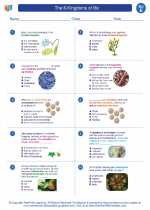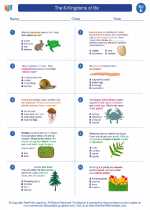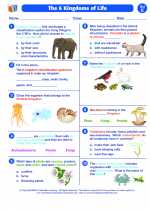Exocytosis: A Cellular Transport Mechanism
What is Exocytosis?
Exocytosis is a type of active transport in which a cell expels molecules by fusing vesicles with the cell membrane. This process allows the cell to release substances into the extracellular environment.
Steps of Exocytosis:
- Vesicle Formation: Molecules to be transported are packaged into vesicles within the cell.
- Vesicle Transport: The vesicles move towards the cell membrane along the cytoskeleton.
- Membrane Fusion: The vesicle membrane fuses with the cell membrane, releasing the vesicle contents into the extracellular space.
- Membrane Recycling: The cell membrane is replenished by endocytosis, ensuring its integrity and functionality.
Importance of Exocytosis:
Exocytosis is essential for various biological processes, including:
- Release of neurotransmitters from nerve cells for signal transmission
- Secretion of hormones from endocrine glands for systemic regulation
- Delivery of digestive enzymes in the gastrointestinal system
- Integration of new membrane components for cell growth and repair
Regulation of Exocytosis:
Exocytosis is tightly regulated by cellular signaling pathways to ensure precise control over the release of molecules. Calcium ions (Ca2+) play a key role in triggering and coordinating the exocytosis process in response to various stimuli.
Exocytosis and Disease:
Malfunctions in exocytosis can lead to a range of health issues, including neurological disorders, endocrine dysregulation, and immune system deficiencies. Understanding the underlying mechanisms of exocytosis is critical for developing targeted therapies for such conditions.
.◂Science Worksheets and Study Guides Fifth Grade. The 6-Kingdoms of life

 Activity Lesson
Activity Lesson
 Worksheet/Answer key
Worksheet/Answer key
 Worksheet/Answer key
Worksheet/Answer key
 Worksheet/Answer key
Worksheet/Answer key
 Worksheet/Answer key
Worksheet/Answer key
 Vocabulary/Answer key
Vocabulary/Answer key
 Vocabulary/Answer key
Vocabulary/Answer key
 Vocabulary/Answer key
Vocabulary/Answer key
 Vocabulary/Answer key
Vocabulary/Answer key
